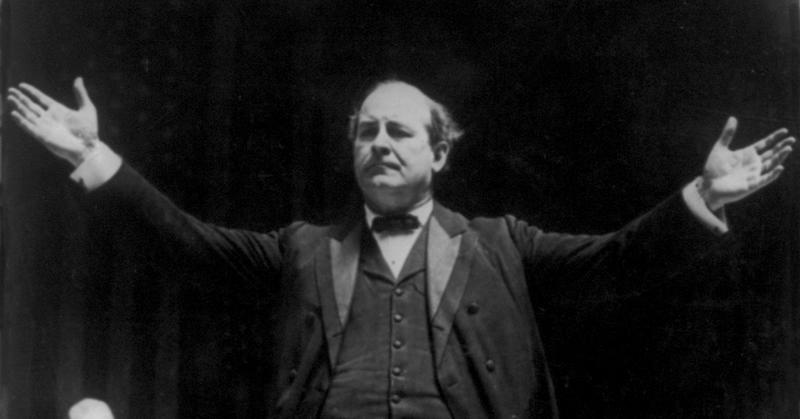Concession Speech History: How U.S. Presidential Candidates Have Announced Their Loss In The Past
By | November 12, 2020

One of the most important parts of the election cycle is the concession speech. It's not something that's legally required of a candidate, but after just about every election, the loser has called, written, or spoken to the winner in person to offer a few words of congratulations before addressing their supporters. Some have handled it with aplomb, others have bailed out on the responsibility completely, but most losing candidates have made some effort to signal to the public their commitment to the peaceful end of what can be a thorny election cycle.
The First Concession
It's entirely possible that our Founding Fathers were making concessions as early as the Adams administration, but the tradition of extending a public olive branch to the presidential victor goes back to at least 1896, when Democrat William Jennings Bryan lost the election to Republican William McKinley and conceded via telegram two days after the vote. He wrote:
Senator [James K.] Jones has just informed me that the returns indicate your election, and I hasten to extend my congratulations ... We have submitted the issue to the American people, and their will is law.

The Concession Speech Formula
There's no one way to concede following an election, but experts have noted a few crucial components of modern concessions. First, a candidate admits their failure but never actually says the words "lost," "lose," or "defeat," instead focusing on the victory of their opponent. After getting that out of the way, the candidate calls for unity across the aisle. After his defeat in the 1960 election, Richard Nixon said:
I have great faith that our people, Republicans, Democrats alike, will unite behind our next president.
Once that's over with, a candidate usually tops the whole thing off by renewing their commitment to continue fighting for their party, the country, and all of the fine people who supported them along the way. If an election is close, the speech tends to be more unifying, but if a candidate loses in a landslide, they tend to get rowdier to pump up morale.

Not Always Graceful
For all the concession speeches that call for bipartisan unity, some sour grapes can pop up after a campaign has flamed out. In 1916, Republican presidential candidate Charles Evan Hughes took two weeks to concede to Woodrow Wilson, and when he finally did, it wasn't very congratulatory. Hughes actually accused Wilson of election fraud before admitting:
In the absence of proof of fraud, no such cry should be raised to becloud the title of the next President of the United States.
Hughes wasn't alone in his poor sportsmanship: After losing the election of 1800, John Adams just left D.C. for a while. He didn't attend the inauguration to drown his sorrows in the free refreshments at his victor's expense.

The Expert
If anyone is a pro at concession speeches, it's Bob Dole. The retired senator has taken numerous shots at the presidency over his extensive political career, and whenever he got far enough to concede, he tried to let his supporters down easy. In 1976, when he and Gerald Ford lost to Jimmy Carter and Walter Mondale, Dole said:
Contrary to reports that I took the loss badly, I want to say that I went home last night and slept like a baby. Every two hours, I woke up and cried.
Two decades later, when he lost the election to Clinton, he discouraged his supporters from booing the incumbent president by joking that if they were too raucous, they wouldn't receive their tax cuts.
Today, we look for concession speeches on the night of an election, but sometimes when a race is super tight this pleasantry is discarded or put off for weeks. In 2000, Al Gore initially conceded to George W. Bush in a phone call before taking that concession back hours later. After the legal debacle that defined that election took place in Florida came to a close, Gore gave a public concession speech from the White House. His tone was conciliatory as he prompted supporters to look to the future.

The Premature (And Then Overdue) Concession
One presidential concession sticks out in election history, mostly because it had to be given twice. During the notoriously chaotic 2000 election, Democrat Al Gore initially conceded to Republican George W. Bush in a phone call before taking that concession back hours later when it became apparent that shenanigans were afoot in Florida. After the legal debacle that defined that election came to a close, Gore gave a public concession speech from the White House more than a month after Election Day. His tone was conciliatory as he prompted supporters to look to the future.

